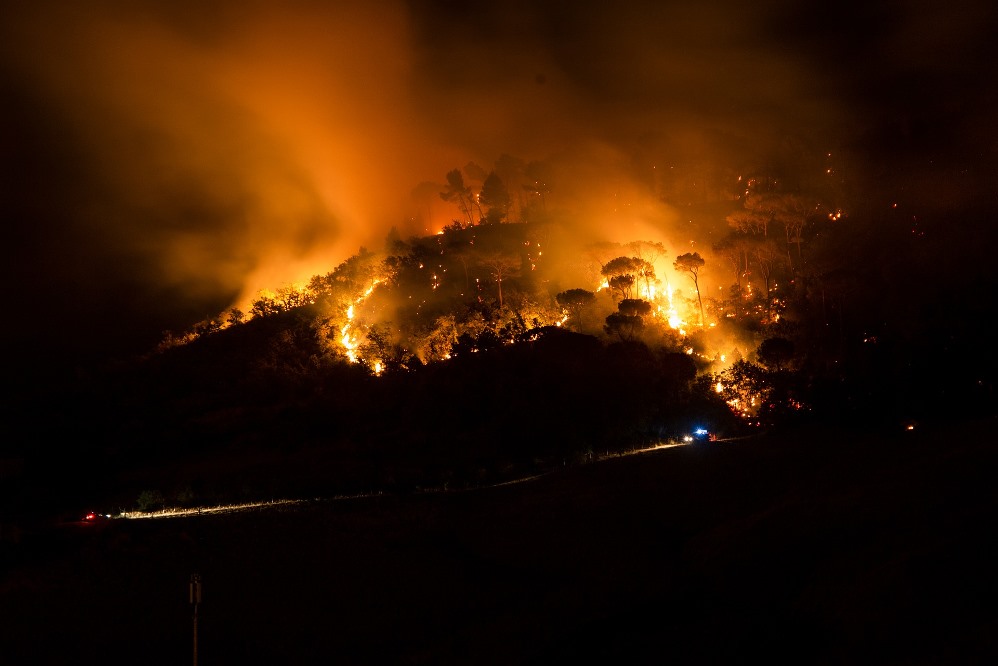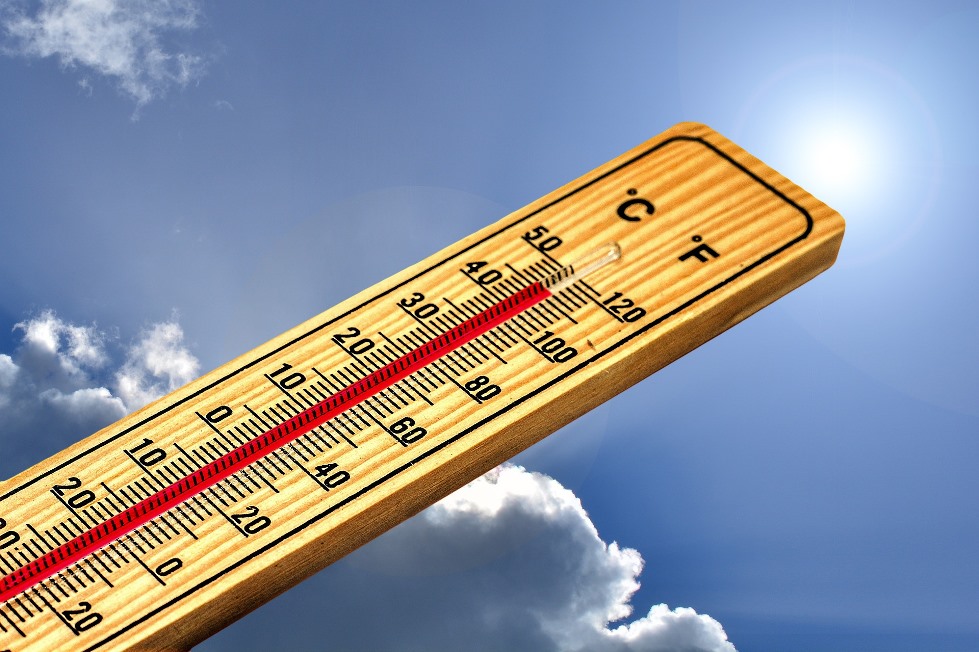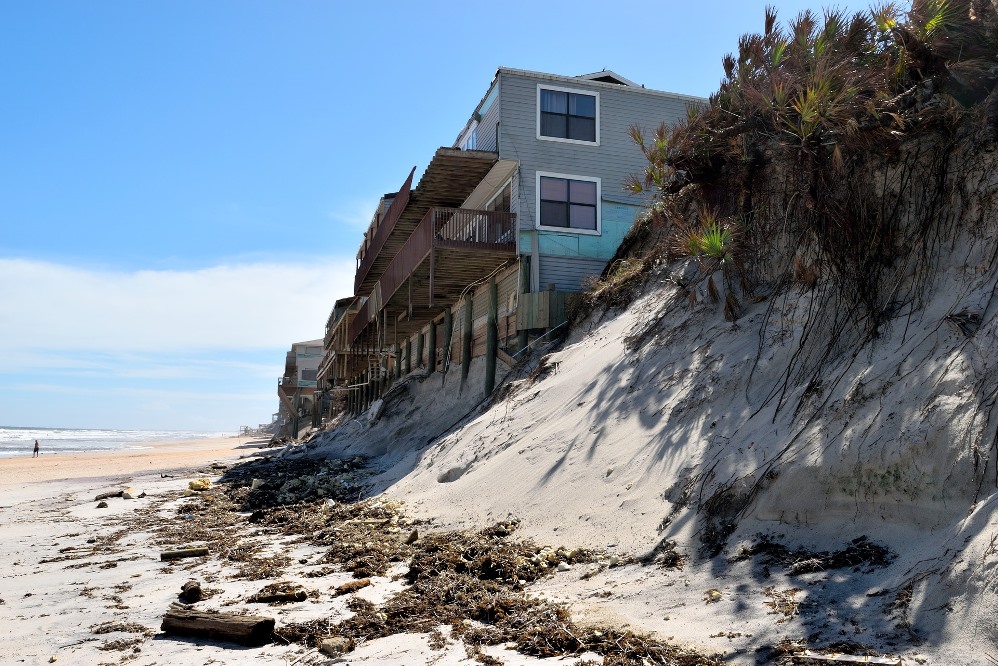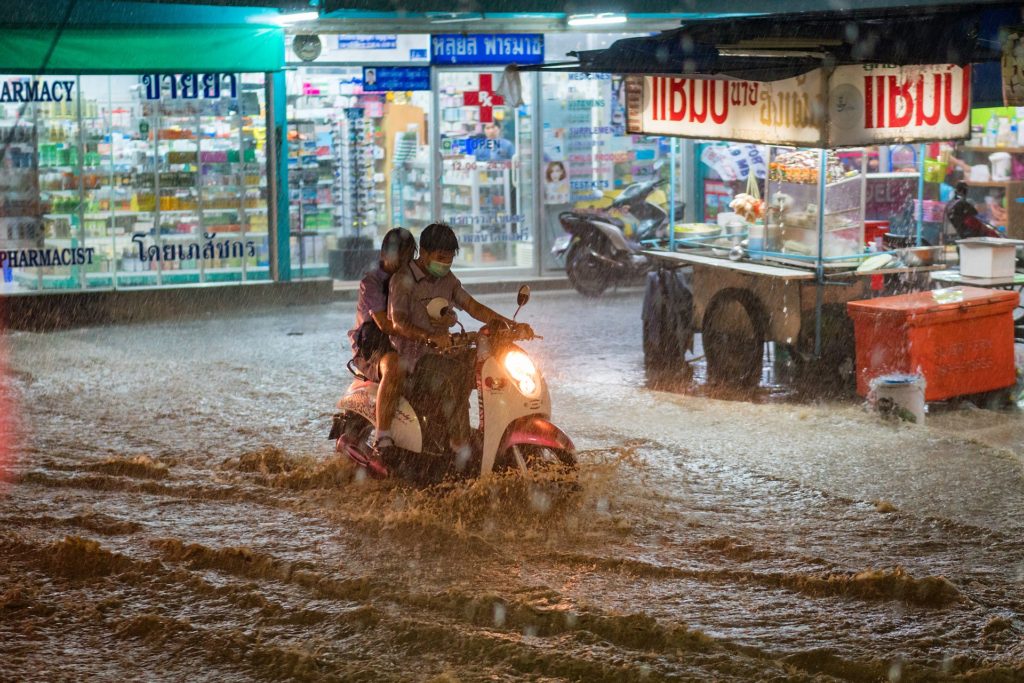Global Warming or Climate Change –Which is the Better Term?
Confused by the terms? You’re not the only one.
Every month about 5,400 people query Google to learn what the difference between climate change and global warming and which term should they use.
There’s an interesting story behind the terms and there are other options, too. It depends on what you want to say.
First, the early story
The first scientists to find and study the impact of human activities on climate called it “inadvertent climate modification”. At the time, it was widely accepted among scientists that changes in the earth’s climates could happen, but that effect was in competition with the cooling effects of the many aerosols (tiny industrial emissions) humans were adding to the atmosphere. So it wasn’t certain that the warming effect would take place. So that cumbersome term stuck.
In 1975 geochemist Wallace Broecker of Columbia University published an article titled “Climatic Change: Are We on the Brink of a Pronounced Global Warming?” This was the first use of the term global warming, but inadvertent climate modification still stuck.
In 1979 Jule Charney of MIT and chairman of the National Academy of Science published a study that served as a strong warning call:
If carbon dioxide continues to increase, [we find] no reason to doubt that climate changes will result and no reason to believe that these changes will be negligible.” ~Jule Charney, et. al., Carbon Dioxide and Climate: A Scientific Assessment, 1979
See the Charney Report, and The Charney Report: 40 years ago
And so the terms global warming and climate change were established in science.
Here are the definitions of the terms
From NASA:
Global warming: the increase in Earth’s average surface temperature due to rising levels of greenhouse gases.
Climate change: a long-term change in the Earth’s climate, or of a region on Earth.
Essentially, global warming refers to the heating atmosphere while climate change refers to all the effects of global warming.
More terms came and went, like global change. But in 1988 global warming was popularized when NASA scientist James E. Hansen testified before congress about the climate and global warming. His testimony was widely reported and the term global warming became the popular term.
Term shenanigans and subterfuge
In 2002 Frank Luntz, a Republican political strategist and messaging specialist that worked to help the Bush administration, tried to downplay the threat of global warming by selecting seemingly gentler terms.
He suggested using the term climate change instead of global warming because it sounded less “frightening” according to some focus groups.
He also urged politicians to encourage the view that there is no scientific consensus on the dangers of greenhouse gases.
A confidential memo that revealed this strategy was leaked and publicized in 2003. Mr. Luntz writes in the memo*:
“The scientific debate is closing [against us] but not yet closed. There is still a window of opportunity to challenge the science.
Voters believe that there is no consensus about global warming within the scientific community. Should the public come to believe that the scientific issues are settled, their views about global warming will change accordingly.
Therefore, you need to continue to make the lack of scientific certainty a primary issue in the debate.“
~From The Guardian and the memo
Sure enough the use of global warming from the Bush administration dropped to near zero in 2002.
But there was an awakening moment
In the middle of one night in December, 2017, Frank Luntz was awakened by his cell phone with an evacuation notice. He looked out his bedroom window to see the flames of the Skirball fire in the Santa Monica Mountains behind his house. He fled.

This was a pivotal moment for his efforts at downplaying the effects of global warming and climate change. It was an example of the “climate crisis made personal”.
He then became an advocate for climate action, and admitted he was “wrong”.
“I’ve changed. And I will help with messaging for you if you’ll have it” he told the Senate Democrat’s Special Committee on the Climate Crisis. “Focus on the consequences of inaction”, he offered, along with other advice in reaching out to the public.
But the term climate change has stuck in common usage. We know that it’s a term of scientific validity. It isn’t actually a gentler term; it may even be a “scarier” term. But then, we need more urgency.
We need stronger terms that better reflect the urgency of the situation
In 2019, SPARK Neuro, a neuroanalytics company that measures emotion and attention for marketing purposes, studied different terms for climate change across three political parties: Democrats, Republicans, and Independents. They found that the term climate crisis had a greater emotional response over climate change, with the Republican response being even stronger.
Spencer Gerol, CEO of SPARK said of the study that evoking emotions is vital to getting people to act. People tend to underestimate how much emotions factor in,” he said. “Ultimately it is emotions that change hearts and minds and lead to actions.”
But some terms elicited a more intense response in a group. He warned that a high level of visceral intensity can backfire, seeming alarmist, and can lead to pushback.

Photo credit: Gerd Altman from Pixabay
But the term climate crisis hit the sweet spot.
“….We have not addressed climate change properly, despite scientists’ dire warnings”, says Sarah Finnie Robinson, at the Institute for Sustainable Energy at Boston University in 2019.
“It’s now a crisis, an emergency, and we need to engage people to demand smart policy and innovation,” she said. “Time is not on our side.”
Greta Thurnberg tweeted the same year “Can we all now please stop saying ‘climate change’ and instead call it what it is: climate breakdown, climate emergency, ecological breakdown, ecological crisis, and ecological emergency?”
We need to clearly educate to motivate action
I think it’s too late to attempt to change the terms global warming and climate change. They are now fully implanted in people’s consciousness and would be very hard to change.
More important, [is] to simply explain how we are heating the planet and how that is hurting people, communities and the economy. Too few people really understand this in simple terms or images.” ~ David Fenton, founder and chairman of Fenton Communications, a social change agency, adapted from cbsnews.com.
Unfortunately the subterfuge of downplaying the science and awareness of climate change sowed seeds of doubt as to whether what our scientists have been telling us is even true. It’s kept many in denial, and made it a politically divisive issue rather than an issue of scientific certainty worthy of attention and action.
So the message has not gotten out clearly enough to the general public.

Pixaby
John Marshall, a brand strategist, has formed a non-profit called Potential Energy Coalition with the mission to find the best ways to communicate the problem of climate change to educate and motivate all sectors of the population.
He advises using terms that people can easily relate to and using vivid language.
He feels that global warming and climate change are too mild and instead suggests using global overheating and extreme weather. A good video to watch about messaging is on the Potential Energy Coalition’s homepage. Scroll down a bit to see it.
So which terms will you use?
Global warming and climate change have historical weight and are in common use. But they lack the kick we need to stir action to change to turn the problem around. We don’t have much time. My feeling is that if you need to approach the topic delicately, those are the best terms to start with.
But to add impact to the conversation climate crisis may be the best one.
Or for more impact global overheating, extreme weather events, climate emergency, or ecological emergency are options.
The choice is yours now that you know more about the impacts they have. Watch the above video to get an idea of what other ways you can help communicate the concepts.
As I write this we are in the midst of one of the most severe droughts in California history with excessive heat all summer, some of the largest wildfires in history, and now we are experiencing an atmospheric river, also called a “bomb cyclone”, a rain event of scary proportions. Trees are down in roadways all over, landslides are occurring, power outages are affecting more people every time I look at the news. And that’s just in my county.
I’m thankful for the rain. But this is not normal. These are extreme weather events. A climate disaster.
Related Reading:
Just What is Carbon Dioxide and How Does it Cause Climate Change?
What are Carbon Emissions?
Two Powerful Ways Soil Soaks Up Carbon Dioxide
Main References:
https://phys.org/news/2019-07-charney-years-scientists-accurately-climate.html
https://www.theguardian.com/environment/2003/mar/04/usnews.climatechange
https://thehill.com/policy/energy-environment/448162-gop-pollster-luntz-majority-of-younger-republicans-worried-by-party-stance-on-climate-change?rl=1
https://en.wikipedia.org/wiki/Frank_Luntz
http://aireform.com/resources/archive-2002-memorandum-to-bush-white-house-by-gop-consultant-frank-luntz-17p/
https://www.sourcewatch.org/images/4/45/LuntzResearch.Memo.pdf
https://www.epa.gov/climate-indicators/climate-change-indicators-heat-waves
potentialenergycoalition.org
https://www.washingtonpost.com/lifestyle/style/how-should-we-talk-about-whats-happening-to-our-planet/2019/08/26/d28c4bcc-b213-11e9-8f6c-7828e68cb15f_story.html
https://www.resilience.org/stories/2019-08-05/messaging-guru-offers-list-of-words-to-use-and-avoid-to-build-support-for-climate-solutions/
https://www.resilience.org/stories/2019-08-05/messaging-guru-offers-list-of-words-to-use-and-avoid-to-build-support-for-climate-solutions/

